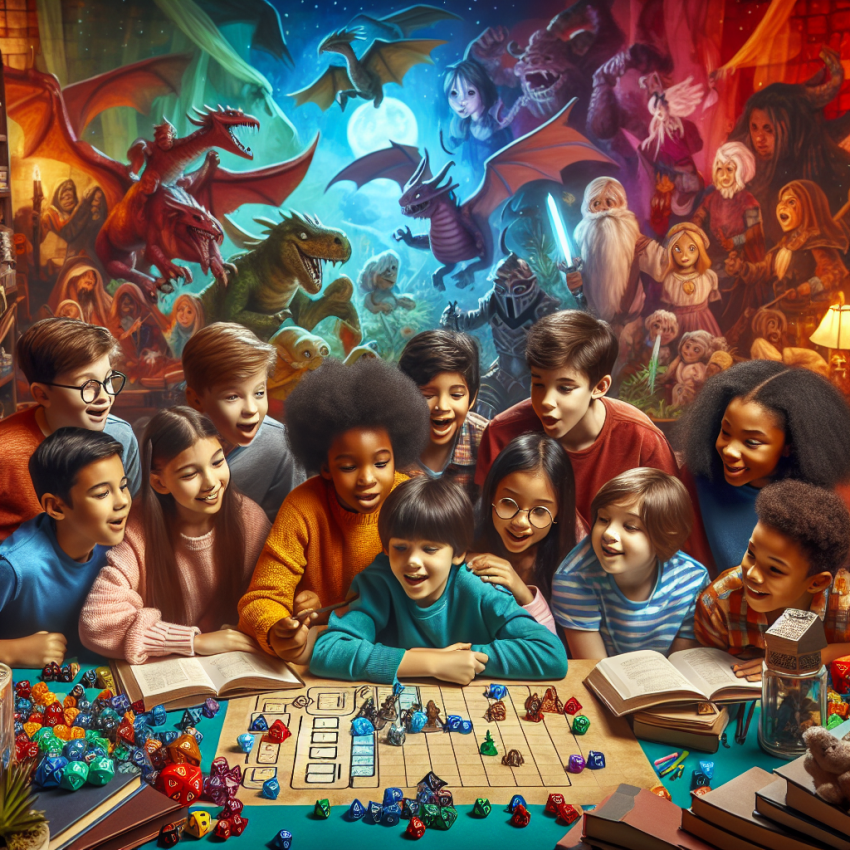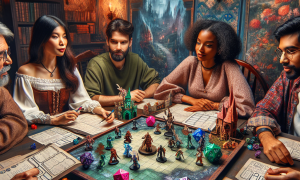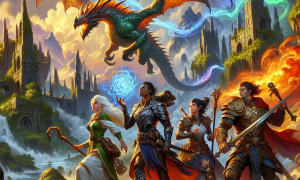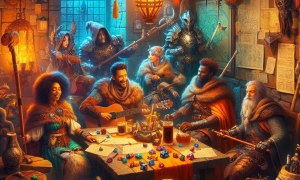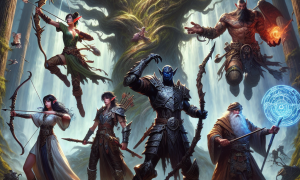Dungeons and Dragons Benefits for Children: Unleashing Imagination
When considering creative outlets for children, many parents overlook the unique advantages that tabletop role-playing games like Dungeons and Dragons (D&D) can offer. With its rich storytelling, collaborative gameplay, and diverse characters, the Dungeons and Dragons benefits for children extend far beyond mere entertainment. In this article, we will explore how D&D fosters imagination, social skills, problem-solving abilities, and much more.
Exploring Imagination Through Role-Playing
One of the most significant Dungeons and Dragons benefits for children is the opportunity to dive into imaginative worlds. In D&D, players create characters and embark on adventures that can transport them to fantastical settings filled with dragons, wizards, and epic quests. This imaginative play has several crucial benefits, including:
- Creative Thinking: Engaging in storytelling and character development encourages children to think creatively. They learn to envision different scenarios and explore various outcomes, which can enhance their overall cognitive abilities.
- Emotional Expression: D&D allows players to express feelings, fears, and hopes through their characters. This imaginative expression can be particularly beneficial for children as they navigate complex emotions.
- World-Building Skills: As players collaborate to create settings and scenarios, they learn skills in world-building, which can inspire interest in writing and the arts.
Social Skills Development in Group Settings
Playing Dungeons and Dragons requires cooperative gameplay, making it a perfect platform for children to develop essential social skills. Here are some ways that D&D nurtures these skills:
Building Cooperation and Teamwork
In D&D, cooperation is key. Players must communicate effectively and work together to overcome challenges. This collaborative effort helps children develop:
- Active Listening: Players must pay attention to one another’s ideas and suggestions, fostering respect and understanding in group dynamics.
- Conflict Resolution: Disagreements can arise during gameplay, providing an opportunity for children to learn how to resolve conflicts amicably.
- Empathy: Role-playing as different characters allows children to step into someone else’s shoes, enhancing their ability to empathize with various perspectives.
Enhancing Communication Skills
Speaking about their characters and narrating actions encourages children to articulate their thoughts clearly. D&D involves in-depth discussions, strategizing with teammates, and making persuasive statements, which cultivate essential communication skills. Children also:
- Practice public speaking in a safe environment.
- Learn to express their ideas confidently.
- Understand the importance of non-verbal cues through character portrayal.
Critical Thinking and Problem-Solving Skills
The intricate plots and scheming involved in Dungeons and Dragons engage children in critical thinking and strategic planning. Players often face challenges requiring innovative solutions. Here’s how D&D sharpens these skills:
Encouraging Strategic Planning
In the game, players must think several steps ahead, weighing risks and rewards. This scenario enhances their ability to strategize and analyze situations critically. Children benefit by:
- Learning to assess multiple options before making decisions.
- Understanding the consequences of their choices.
- Applying logic and reasoning to overcome obstacles.
Facilitating Adaptability
As the game progresses, unexpected events or challenges often arise. Children learn to adapt their strategies quickly, boosting their resilience and flexibility. Embracing change in-game situations encourages them to handle real-life challenges with a similar attitude.
Fostering a Sense of Community
Dungeons and Dragons provides a unique social environment where children can forge friendships. The game encourages players to be part of a community, enhancing their social development:
- Creating Lasting Friendships: Through regular gaming sessions, kids bond with their peers in ways that often lead to lasting friendships.
- Promoting Inclusivity: D&D is diverse and welcoming, allowing children to play as characters from various backgrounds and abilities, fostering acceptance and inclusivity.
- Building Support Networks: Kids learn to support each other in and out of the game, fostering a sense of belonging and attachment.
Boosting Confidence and Self-Esteem
Another valuable aspect of the Dungeons and Dragons benefits for children is the boost in confidence it provides. As players embark on quests and engage in role-playing, they are likely to witness personal growth:
Encouraging Initiative
Taking charge of a character teaches children to make decisions and take initiative. Whether they choose to confront a dragon or negotiate with a rogue, their ability to make choices builds confidence over time.
Celebrating Achievements
Every successful quest, creativity in storytelling, or personal narrative expressed leads to a sense of achievement. Celebrating these small victories offers children recognition and reinforces their self-worth.
Conclusion: Harnessing the Power of Dungeons and Dragons
In conclusion, the Dungeons and Dragons benefits for children are both profound and far-reaching. By embracing imagination, fostering social skills, honing critical thinking, and building confidence, D&D serves as a remarkable tool for personal development. Encouraging children to engage in tabletop role-playing games can lead to a wealth of positive outcomes, nurturing well-rounded individuals who are prepared to tackle challenges with creativity and resilience.
As parents and guardians, if you’re looking for a way to support your child’s growth and development, consider introducing them to the world of Dungeons and Dragons. Not only will they have fun, but they will also acquire valuable life skills that will benefit them well beyond the gaming table.
Citation: Children can benefit from playing Dungeons and Dragons written by Carey Smith
